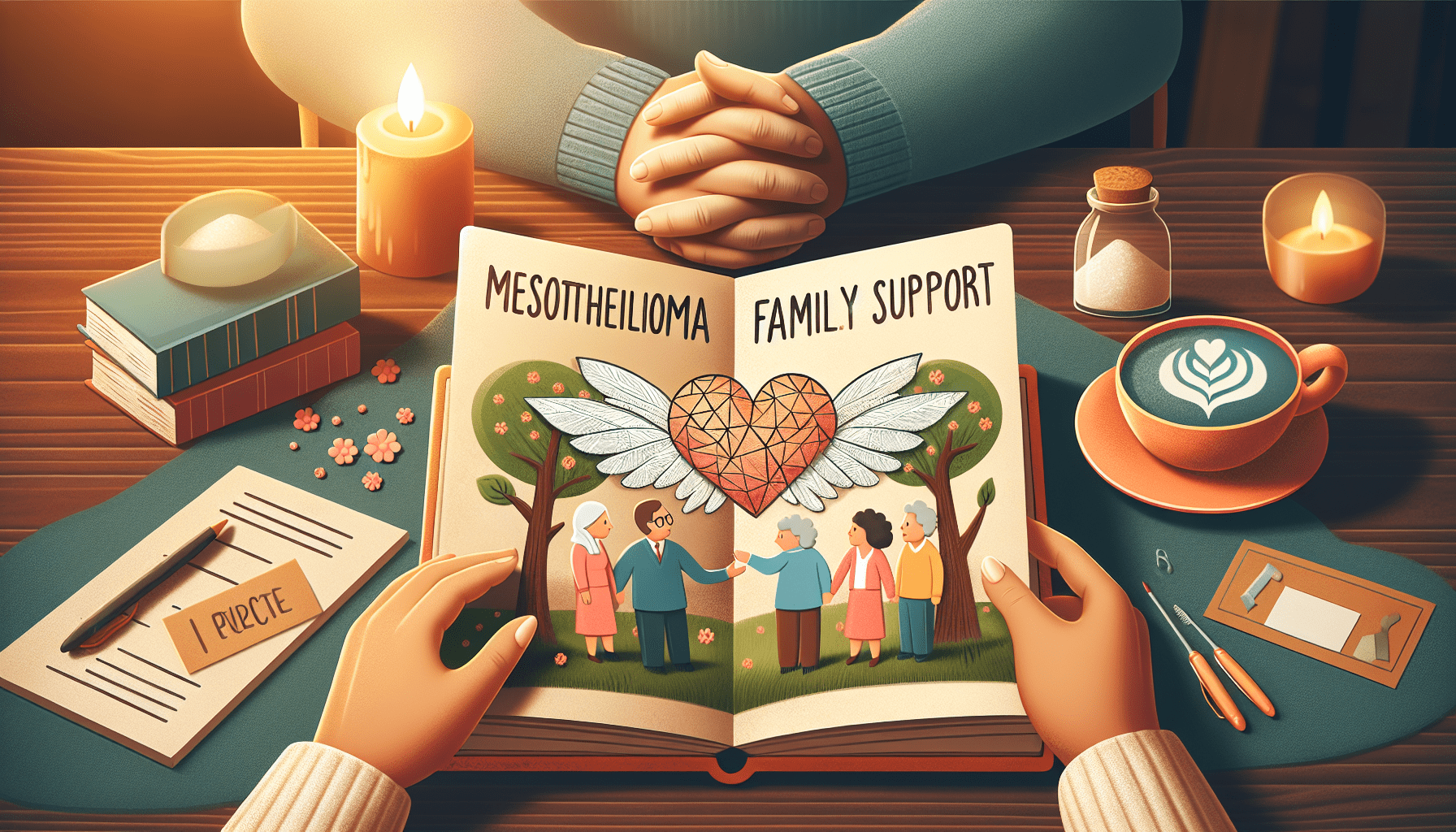Mesothelioma Diagnosis Process: A Compassionate Guide
Hello, my dear friend. My name is Jane Smith, R.N., and for 15 years I have walked alongside those affected by mesothelioma. When I first encountered the term mesothelioma, it felt like my world slowed down, and I understood the immense challenges that lie ahead. Today, I want to share the diagnosis process from my heart to yours – a step-by-step guide meant to empower you with knowledge, support, and genuine hope. My experience as a patient advocate has taught me that understanding each step can ease the burden, provide clarity, and bring a sense of connection when you feel alone.

Understanding the Diagnosis
Mesothelioma is a rare and aggressive cancer affecting the lining of the lungs, abdomen, or heart. The journey from the first signs to an official diagnosis can be overwhelming. I remember feeling terrified and confused at the beginning, unsure where to turn. I want you to know that it’s okay to feel this way. Information, clarity, and shared experience can transform fear into a path of empowerment.
The First Signs and Symptoms
The initial symptoms – such as persistent coughing, chest pain, and fatigue – might be mistaken for other common illnesses. The mesothelioma diagnosis process starts when these symptoms persist and a doctor recommends further investigation. During this phase, compassionate communication with your healthcare team is vital to navigate the next steps.
Figure 1: A visual reminder that reaching out for support during the diagnosis process can be a beacon of hope.
Steps in the Mesothelioma Diagnosis Process
Once your doctor observes symptoms and conducts an initial evaluation, the process for mesothelioma diagnosis proceeds through several critical steps:
1. Diagnostic Imaging Techniques
One of the first steps is diagnostic imaging. Techniques such as X-rays, CT scans, and PET scans help visualize the affected areas, giving clues about abnormal growths. These tools, when interpreted by specialists, allow us to understand the extent of the disease. I learned that these scans not only provide a picture of what is happening inside but also set the stage for more definitive diagnostic tests.
2. Biopsy Procedures
A biopsy is often necessary to confirm mesothelioma. Procedures like thoracoscopy, thoracentesis, or even peritoneal biopsy are performed to collect tissue samples. While the idea of a biopsy can be daunting, knowing its purpose and how it guides treatment decisions can provide some comfort. For example, a thoracoscopy involves a small incision and a camera to inspect the pleura, while thoracentesis removes fluid from the lungs to check for cancer cells.
3. Mesothelioma Staging
After the biopsy confirms a diagnosis, the next step is staging. Mesothelioma is generally staged from I through IV, with Stage I indicating localized disease and Stage IV denoting advanced spread. Understanding your stage helps in planning the most effective treatment options, such as surgery, chemotherapy, immunotherapy, or multimodal therapy. I have seen how this knowledge, though difficult, can help in planning future treatments.
Navigating the Emotional Journey
When I first received my diagnosis, the emotional impact was profound. It is normal to encounter waves of sadness, anxiety, and disbelief. As you move from diagnosis to treatment, it’s important to embrace these feelings and know that you are not alone. Reaching out to supportive communities, patient advocates, or counseling services can provide the comfort and strength needed.
I remember the overwhelming fear and isolation when I was first diagnosed. Joining a local support group changed everything for me. Sharing our stories, asking questions, and simply listening helped me realize that hope always shines through even in the darkest times.
Tips for Coping with Anxiety and Uncertainty
- Seek Professional Guidance: Always consult your oncologist or a trusted healthcare professional to discuss your treatment options and concerns.
- Connect with Others: Whether through online forums or local groups, talking with people who understand can be incredibly healing.
- Prioritize Self-care: Simple practices such as mindful meditation, gentle exercise, or creative hobbies can help manage stress.
Remember, taking a moment for yourself isn’t selfish—it’s necessary. I encourage you to create a self-care plan that addresses both physical and emotional well-being.
Understanding Your Diagnostic Tests
It’s essential to have clarity about the various tests, what they entail, and how they influence your treatment plan:
Diagnostic Imaging: A Closer Look
Imaging tests are like the roadmap in your diagnostic journey. CT scans provide detailed cross-sectional images of the chest, helping doctors identify lesions. PET scans further demonstrate how active the suspicious areas are by highlighting metabolic activity. These images are interpreted by radiologists who specialize in oncology, aiming to piece together the puzzle.
Biopsy: Confirming the Diagnosis
During a biopsy, the sample obtained is microscopically examined for malignant cells. This test is crucial because it confirms the presence and type of mesothelioma. Understanding the exact nature of the cancer can be challenging, so I always advise asking your doctor to explain the biopsy results in plain language.
Empowering Yourself: Questions to Ask Your Doctor
Knowledge is power. When discussing your diagnosis with your medical team, here is a checklist of insightful questions that have helped me and many others:
| Category | Questions |
|---|---|
| Diagnosis & Staging |
|
| Treatment Options |
|
| Support & Resources |
|
This checklist is a starting point. Feel free to add your own questions and bring them to your next appointment. For example, please check our detailed guide on treatment options and our support resource page for further insights.
Figure 2: An illustration highlighting the various diagnostic tests used in identifying mesothelioma, aimed at demystifying the process.
Transparency and Support Resources
I want to be completely honest with you. MesoGuideCenter is a free resource supported by our network of mesothelioma law firms. This funding allows us to connect you with experienced legal and medical professionals while ensuring access to comprehensive, compassionate information at no cost. This transparency is part of our commitment to serving you with integrity and heartfelt care.
Stepping Forward with Hope
To my dear readers facing the complexities of a mesothelioma diagnosis, remember that this journey, though challenging, is not one you need to walk alone. I have witnessed firsthand the strength that emerges when we share our experiences and seek help from those who understand our battle. Whether it’s talking to your doctor about every detail, participating in support groups, or simply taking a moment to care for your emotional well-being, each step counts.
Words of Encouragement I’ve Found Helpful
Every day is an opportunity to find strength in unexpected places. I encourage you to embrace the small victories, lean on your support network, and be gentle with yourself. Even during the hardest times, remember that hope is real and that shared experiences can light the darkest paths.
Information on treatment guidelines current as of May 2025.
Final Thoughts and Next Steps
As we conclude this guide, my wish is for you to feel more informed, supported, and empowered to face the mesothelioma diagnosis process. I invite you to reach out to your healthcare provider with any concerns, utilize resources from reputable organizations such as the National Cancer Institute and American Cancer Society, and connect with communities who share your journey.
Please consider these concrete steps:
- Review your biopsy and imaging results with your doctor until you completely understand your diagnosis and staging.
- Ask about clinical trials and emerging treatment options like immunotherapy.
- Talk openly with loved ones about your feelings and lean on support groups for emotional guidance.
- Use the provided checklist during your appointments to ensure you address every concern.
My heartfelt advice is to take one day at a time, and to know that your courage and resilience are a light in this challenging journey. I am with you every step of the way.
For additional support, explore our caregiver tips page and our community stories to see how others have found strength through adversity.
Thank you for trusting me to be your guide during this time. Remember, you are not defined by your diagnosis, but by the amazing strength you show every day.






